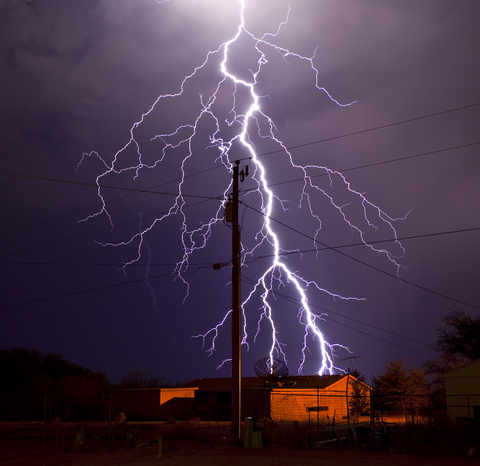Managing menopause naturally
 Anyone who is a regular reader of this blog knows that my goal is to explore and identify effective strategies to manage menopause and midlife challenges, strategies that don’t necessarily involve pharmaceutical agents. However, although I am strongly in favor of an integrative approach to health, I am the first to recognize that drugs and certain alternatives, e.g. herbs, are not incongruous but rather require informed decision making. What I don’t support, however, is disease mongering; as greater numbers of women enter menopause, they are increasingly becoming a target for the ‘Menopause Industrial Complex,’ a term that I believe applies to any organized effort to provide women with agents to combat the aging process and highlight the need to use them. In this case, informed decision making becomes a rather misinformed mess.
Anyone who is a regular reader of this blog knows that my goal is to explore and identify effective strategies to manage menopause and midlife challenges, strategies that don’t necessarily involve pharmaceutical agents. However, although I am strongly in favor of an integrative approach to health, I am the first to recognize that drugs and certain alternatives, e.g. herbs, are not incongruous but rather require informed decision making. What I don’t support, however, is disease mongering; as greater numbers of women enter menopause, they are increasingly becoming a target for the ‘Menopause Industrial Complex,’ a term that I believe applies to any organized effort to provide women with agents to combat the aging process and highlight the need to use them. In this case, informed decision making becomes a rather misinformed mess.
Speaking of misinformed messes, do you recall Hot Flash Havoc, which I characterized as ‘an infomercial of menopausal proportions, a messy mash-up of HRT hype and fear and loathing, a big estrogen dildo just waiting for an opening?’ Truly, this film made me lose faith in ways I never thought possible. Fortunately, however, everything that is so very wrong with Hot Flash Havoc is so very right with Managing Menopause Naturally, a new documentary that is slated for release on September 27.
Admittedly, I was skeptical going into the screening of this film. And fully convinced coming out of it that Managing Menopause Naturally achieves everything that Hot Flash Havoc did not. If there is a menopause goddess, she is lurking in a variety of MDs, nutritionists, midwives and academics, including those featured in this film, who believe that informed decision making lies with fair balance and choice and not with fear and self-loathing.
Managing Menopause Naturally takes the stance that postmenopausal women are no more estrogen-deficient than young girls approaching puberty and that contrary to public opinion, women going through menopause have plenty of hormones but at a lower level than their reproductive years. In fact, as Aleida LLanes-Oberstein (an RN and Board member of the New York State Midwifery Association) says, menopause is nature’s way of helping a woman move into a less stressful part of her life, to be free of childbearing and rather, nurture herself and her extended family. What an opportunity instead of a death sentence! Moreover, Western culture that has become desensitized toward this transition into another period of a woman’s life, a vision that is a far cry from Eastern cultures that believe that menopause is a period in a woman’s life where blood, fluid and hormones are directed inward for a woman to use for herself for revitalization and healing.
The film offers up current knowledge and education, not just about a woman’s anatomy but also about societal constructs, pharmaceutical and non-pharmaceutical strategies and generational distinctions. It provides a context for menopause, following a historical trail peppered with respectful humour and anecdotes. It is thorough, well-researched and challenges the viewer to challenge the status quo, place menopause within the context of an entire lifetime, acknowledge that there is no single correct path to follow and to make choices based on personal preference and need, as well as community knowledge. This is especially important notes one of the film’s experts, Tierona Low Dog, an MD and midwive and Director of Botanical Medicine at the University of Arizona Program of Integrative Medicine, particularly in the context of where we are today with hormone replacement. “If we start to use community knowledge, menopause and the issues surrounding hormone replacement therapy will be based on educated information and less on dogma,” she says.
In addition to community involvement, the film also points to the need for younger women to start thinking about menopause earlier, an opinion I have long held. Granted, it’s tough to think about menopause and aging in your mid-thirties when kids and family and work and life get in the way. And who wants to think about growing older? Nevertheless, as another expert, Isis M. Medina DC, CCN. Associate Professor at New York State College of Chiropractic notes, “taking measures to take charge early” can alter how the menopause transition plays out. The overriding message of the film is that ultimately, menopause is a personal puzzle that is only partially addressed by hormones, vitamins or other strategies and that that puzzle is a personal one with many data points ranging from lifestyle and geography to diet and culture.
If I have one major criticism of the film, it’s that it is too long, and I suspect that a few viewers will drop off far too early to obtain some of the more important messages that are sprinkled through towards the end. I wish that the editing had been tighter but even after watching it a second time, I’m not sure where I’d cut first; that’s how much I liked the point of view, the honesty and the tone.
Every now and then, something comes along to challenge our inner skeptic, inform our doubts, answer our concerns and help us forge a new path. This film is a gift and I encourage you to watch it.
[Disclosure: I did not receive any compensation to review or endorse this film. However, the marketers did provide me with a free copy of the DVD for my personal review and use.]
Read More
Wednesday Bubble: up in smoke
When I first posted this piece in 2008, it generated a lot of comments and a lot of concern, mostly among my contemporaries, who, like me, are former smokers. But since 2008, the one factor that consistently appears to be linked to menopause (and even early menopause) is smoking. Hence, I feel that it’s important to repost this – not only for my contemporaries but for those of you who continue to engage in the tobacco habit.

I remember the first time I had a cigarette. It was a Kool, purchased surreptitiously from the candy shop across the street from McKinley School. The year was 1969 and I was eight years old.
Yes, I said eight!
It used to be cool to smoke. My girlfriends and I would pretend we were in the teachers’ lounge (remember those?). By the time I got to college, I switched to clove cigarettes. And then afterwards, Marlboro Lights. I was up to a pack and a half a day by the time I stopped smoking. At the age of 30.
This means that I smoked, on and off, for 22 years.
At the age of 46, I had my first night sweat. I turned 47 this past May, and started to address my perimenopausal symptoms more seriously. And started this blog.
You may wonder why I’m sharing these intimate details of my covert and then overt smoking life.
Researchers say that first- and second-hand smoking not only increases the risk for death from heart disease and cancer, but may also significantly increase the risk for starting menopause at an earlier age (i.e., around age 45 rather than the average age of 51).
Data from a cross-section of 5,029 women aged 25 and older participating in the National Health and Nutrition Examination Survey III have shown that women who were current smokers (as measured by self-reports and blood levels of nicotine) started menopause at a mean age of 47, while women in service industries who were exposed to nicotine in their jobs started menopause at a mean age of 46.
Black women who had been regularly exposed to cigarette smoke had 12 times the odds of other racial groups of an earlier menopause age compared with smokers and nonsmokers who had not had any exposure. The investigators attributed this significantly increased risk among Black women to the body’s inability to clear nicotine from the blood as quickly as their peers.
The purpose of this study was to demonstrate that women in the workplace who are exposed to second-hand smoke are at increased risk for many of the same diseases as smokers. They’ve now added early menopause to this list.
What is less clear, however, is the risk for “former smokers,” since they were taken out of the analyses.
Makes you wonder if many of us who are former smokers or were exposed to second-hand smoke on a regular basis in our homes (a good percentage of women our age, as my sister in law pointed out), are at a higher risk as well.
Sort of like poster children, right?
Read MoreAnd then the power died…what did I forget?
I was planning on writing a review of a new documentary about menopause when the power died. Mama Nature and her power surge obviously has other plans for me so I will leave you to an oldie but goodie. Look for Wednesday’s Bubble cause this doc is worth consideration.
And so, without further ado…
If you’re anything like me, you are starting to forget things. Things you need to do, why you walk into rooms, shopping lists, things you said, the whole nine yards. For me, it’s become the norm, not the exception and while I spend a lot of time making jokes about it, it also drives me crazy.
Yet, today’s Bubble is not one that I’m likely to forget. I’d like to think of it as one part inspiration and one part WTF? And it leaves me with a whole lot of questions to boot.
Study findings suggest that gaining weight during menopause may increase the risk for loss of gray matter. Gray matter refers to the cortex of the brain, which contains nerve cells. It is involved in muscle control, sensory perception (seeing/hearing), emotions, speech and finally, memory.
In this study, which was published in the online edition of the journal Psychosomatic Medicine, researchers evaluated brain imaging data, demographic information (height, weight) and behavioral measures (perceived psychiatric stress) obtained from 48 healthy postmenopausal women. Data were collected over a 20-year period.
The findings showed a unique association between increase in body weight during the transition from peri- to post-menopause (as measured by body mass index or BMI) and a 22% reduction in grey matter volume. These findings occurred in women who were otherwise healthy, had no history of heart disease or psychiatric illness and did not meet the threshold for obesity (>30 BMI). All women had also undergone natural menopause.
The researchers suggest that weight gain during menopause is a “highly modifiable risk factor” that may help to prevent or slow “potential alterations in brain function that are important to quality of life.”
I’ve written previous posts on cognitive issues during menopause, whether they be linked with life stressors, HRT or aging. Now it seems that researchers are telling us that weight gain may also be a risk factor.
Less clear is how much weight gain and what we should do about it. In general one solution to combating weight gain in midlife is restraint. Coupled with exercise, this may just be the magic formula. In the meantime, I think that we need a few more studies to take a closer look at brain matter changes in midlife.
What do you think?
I just forgot why I’m asking you that…!
Read MoreWednesday Bubble: not your mama’s menopause?
I have been writing about the medicalization of menopause for several years now. So I was intrigued when I stumbled across a review in the Journal of Aging Studies discussing how the social construct of menopause has shifted to “an increasingly more medicalized perspective that emphasizes the biological deficits of the aging female body.”
In this piece, researcher Rebecca Utz reports on qualitative interviews that she conducted with a small group of pairs of mothers and daughters, divided by generation and apparently, attitudes towards menopause. Medicalization, she writes, “is defined as the way in which the apparently scientific knowledge of medicine is applied to a range of behaviors that are not self-evidently biological or even medical, but over which medicine has control.” Therefore, in the case of menopause, our definition has shifted from something that a natural part of our development to an illness-based perspective “requiring medical intervention.”
Accordingly, when she interviewed both groups of women (mothers born during the 1920s and 1930s, and daughters born in early to mid-1950’s) she discovered that despite the commonality of physical symptoms, attitudes were significantly different:
- The older women did not perceive menopause as a problem or disease but rather, something that “just happened.” As such, it was not part of their narrative and most were uncomfortable discussing it, primarily because they considered it private and “inappropriate for public discourse” much like sexuality or emotional instability. And the steps taken to address it: Watch and wait for it to be over.
- The daughters, on the other hand, were likely to seek medical treatment as soon as symptoms appeared. This behavior is consistent with the premise that menopause has been increasingly medicalized. However, it wasn’t simply menopause that the younger women were fighting but on a larger level, aging. “In other words, menopause was just the beginning of a long, downhill battle that cannot possibly be won,” but can be controlled and self-managed. Moreover, these women’s fear was not necessarily entrenched in hot flashes and night sweats, but in what the start of menopause meant in terms of the delineation between youth and middle/old age and even “end of life as we know it,” a new older life stage that was unwelcome. The “cure” of course, were hormones and other pharmaceutically-derived interventions, which represented a way to “suspend old age” and control the physiological aspects of aging.
Not surprisingly, Utz also points to the ‘Menopause Industry:’ a “profit-seeking enterprise comprising pharmaceutical companies and perpetuated by the media intent on “turning 40 million baby boomer women into patients for life by defining menopause as an estrogen deficiency disease requiring significant medical intervention.” While the companies create the drugs, the media (whose increased attention attention to menopause, largely fueled by the wave of 1970s feminism and in part, funded by corporate interests) not only provide women with access to the information and resources that they seek but also contribute to perceptions of personal control among women who do not want to “sit back and let menopause just happen to them.” The result is that the Menopause Industry has not only developed products that these women crave that allows them to win their battle against old-age, but, continues to highlight the need for them.
Where does this leave us?
Although some women have fallen off the HRT wagon post-WHI study findings, others have remained. And even more expect the pharmaceutical industry to come up with something different to “quell the realities of their aging bodies.” Are we/they in for a surprise? Perhaps, because as Utz writes, aging is inevitable, even with quick fixes, and that at some point “the perceived autonomy and need for personal control may make [these women] more vulnerable or less prepared than their mothers to face the realities of old age.”
I’d like to offer another, more positive construct up for consideration:
Taking control doesn’t have to mean that the aging process is denied, stopped or obliterated, medicalized or industrialized. Rather, it means taking charge to feel better, more vibrant, healthier so that you/we/I can live the best life I can live while we are alive. For me personally, that doesn’t mean hormone replacement or botox or lipo; it means trying to make more healthier decisions, control or address my symptoms with evidence-based alternatives and accept the transition as a natural part of my journey. So, much like the mothers in this research, I consider this time an opportunity for shifting priorities and interests that open all sorts of possibilities. And like the daughters, I want to take the experience out of the closet and foster discussion and sharing. Ultimately, I’d like the see a more natural course driven by women themselves, as opposed to societal expectations and stigmatization of the aging process and as opposed to the Menopause Industrial Complex.
What about you?
Read More
Wednesday Bubble: diabetes and the ‘pause
When I saw a post on my Facebook stream linking hormonal imbalance to diabetes, I become intrigued, ever more so when I ran across the following headline in my daily newsfeed:
“Does menopause matter when it comes to diabetes?”
So, does it or doesn’t it?
According to the first piece that resides on the website of the hormone franchise, BodyLogic MD, imbalances of hormones other than insulin can promote insulin imbalances or resistance that is especially evident during menopause. Their hypothesis? Hormone replacement will correct these imbalances and prevent millions of women from developing diabetes.
In fact, there is evidence that as endogenous androgen levels rise and estrogen levels fall, there is a predisposition to glucose intolerance (i.e. a struggle to convert blood sugar or glucose into energy) and by default, diabetes. Moreover, estrogen therapy has been shown to reduce fasting blood glucose levels in menopausal women (fasting blood glucose or sugar measures glucose levels in the bloodstream and is a test for pre- and full blown diabetes). However, it is unknown if menopause itself is associated with high glucose levels or plays a role in influencing factors such as insulin secretion and insulin resistance that mediate glucose tolerance. Nevertheless, it is possible that menopause status may tip the scales in women who are already at high risk for diabetes or even influence activities undertaken to prevent the condition.
In a soon to be published study (August issue, Menopause journal), researchers compared perimenopausal women to women who had entered menopause naturally and those who had had their ovaries removed. All participants were between the ages of 45 and 58, and part of a larger Diabetes Prevention Program trial, meaning that they already had been diagnosed with having impaired glucose tolerance and fasting glucose levels and were at risk for diabetes. Of the 1,237 women studied, they had either been assigned twice daily diabetes medication (Metformin), twice-daily placebo tablet or an intensive lifestyle intervention to achieve and maintain a weight reduction of at least 7% (through a low-calorie, low-fat diet, and at least 150 minutes moderate physical activity weekly).
Read MoreWednesday Bubble: Got symptoms? Got milk? An udder disaster…
Milk is being touted as the next best thing, that is, when it comes to hormonal symptoms. In fact, a new campaign sponsored by the California Milk Processor Board centers around the claim that milk can help reduce the symptoms of PMS. EverythingIdoiswrong.com offers global gauges of PMS symptoms, packaged apologies for men who feel victimized by PMS and even analyzes or verifies their mistakes so that they can avoid them during the next cycle. In a piece about the marketing effort in the Washington Post, Executive Director of the California Milk Processor Board, Steve James, is quoted as saying that the strategy is to “disarm the situation surrounding PMS and its effects,” both for women and individuals around them who are suffering from their mood swings and other symptoms.
Say what?!!!
Is this advertising for milk or a drug claim?
According to the website, the claims about milk are derived from a review that appeared in the year 2000 in the Journal of the American College of Nutrition. In the review, the authors discuss the potential links between altered calcium balance and affective disorders, such as depression and anxiety. Because women with PMS reportedly have calcium fluctuations that interfere with hormonal balance, some researchers have hypothesized that this imbalance can lead to both mood and other features of PMS. In these studies, however, participants obtained their calcium through supplements and not through dietary means; this enabled the researchers to control and standardize intakes (which averaged as much as 1300 mg calcium daily). Translated into daily milk consumption, this means that a person would have to drink more than 4, 8 oz glasses of milk daily to achieve the level of calcium used in clinical studies.
Honestly, do you know anyone over the age of “tween” who consumes that much milk?
Regardless of the studies cited, the claims about milk are exaggerated and inconclusive. Many of the studies were poorly designed or relied upon recall. However, one has to wonder if the milk-PMS claims will set off a cascade of others that stretch to the other end of the hormonal spectrum –menopause — where too much calcium is believed to be too much of a good thing: although calcium may offer protection against osteoporosis, it may also increase the risk for heart disease in some women.
Let’s get away from the hard science for a moment and take a closer look at the campaign. The inference:
- Women: your PMS causes undue suffering to people around you, especially your male partners
- Men: humor the woman in your life. If you want to save your relationship, friendship, partnership, etc, create a photo with puppy eyes, film a video apology or better yet, make fun of her. Oh, and have her drink milk.
Don’t know about you but this one is so absurd it may not even be bubble-worthy. Hey California Milk Processor Board – you may want to add a few women to your marketing team. This one’s an udder disaster.
Hat tip to Reuters Health Executive Editor, Ivan Oransky for the campaign heads up. (I tried to milk it Ivan – how’d I do?!!)
Read More









